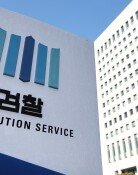[Editorial] Quality of Korean College Education Still Needs Improvement
[Editorial] Quality of Korean College Education Still Needs Improvement
Posted November. 10, 2007 07:50,
To assess a countrys competitiveness, one generally looks at its colleges as the standards set by the education system tend to manifest sufficiently relevant signs.
Listed in the top 200 schools reported by Englands The Times Higher Education Supplement and recruitment consulting firm QS are a measly two schools in Korea.
Such a poor showing is inconsistent with the economic power of Korea, the world`s 11th biggest economy. Seoul National University climbed up 12 slots to 51st place, whereas the Korean Advanced Institute of Science and Technology (KAIST) ranked a degrading 132nd while making its debut in the top 200.
With the government imposing control over even the college admissions process, our domestic school system is up against an insurmountable wall when competing with foreign systems that are traditionally free to promote their own standards of innovation and competition-driven achievement. In April 2006, the University News Network conducted a survey of local professors on the means with which to enhance the competitiveness of domestic universities. Expectedly, the top response was strengthening independence of universities and minimizing government interference.
Regulations on the high school ranking system and essay-writing, restrictions on tuition inflation, and quotas for law school applicants are examples of governmental controls that keep Koreas university systems from being competitive on a global scale. Notwithstanding this, some presidential candidates have promised to introduce the equalization policy toward college levels by eliminating the college entrance examination system.
The aforementioned rankings listed Harvard University at the top for the fourth consecutive year, followed by the universities of Cambridge, Oxford and Yale in joint second place.
Contrary to the strong showings by England and the U.S., it is interesting to see that countries with high governmental influence over the education system fared poorly. the University of Heidelberg (Germany) ranked 60th and Frances Grandes Ecoles, dubbed elite higher education institutions, 26th. The difference between European schools and schools in America and England lies in independence and competitiveness of schools.
Improved efforts by Koreas academic institutions themselves are no less crucial in rectifying the problems at hand. Scandalous staff hiring practices, organizational corruption, and issues regarding the distribution of power among professors are but several of many aspects of the deficiencies that need to be addressed before Koreas colleges can hope to approach respectability.



![“한동훈, 정치생명 걸고 무소속 출마해 평가받는 것 고려할만”[정치를 부탁해]](https://dimg.donga.com/c/138/175/90/1/wps/NEWS/IMAGE/2026/01/19/133186982.1.jpg)


![[한규섭 칼럼]왜 여당 지지율은 떨어지지 않는가](https://dimg.donga.com/c/138/175/90/1/wps/NEWS/IMAGE/2026/01/19/133189257.1.png)
